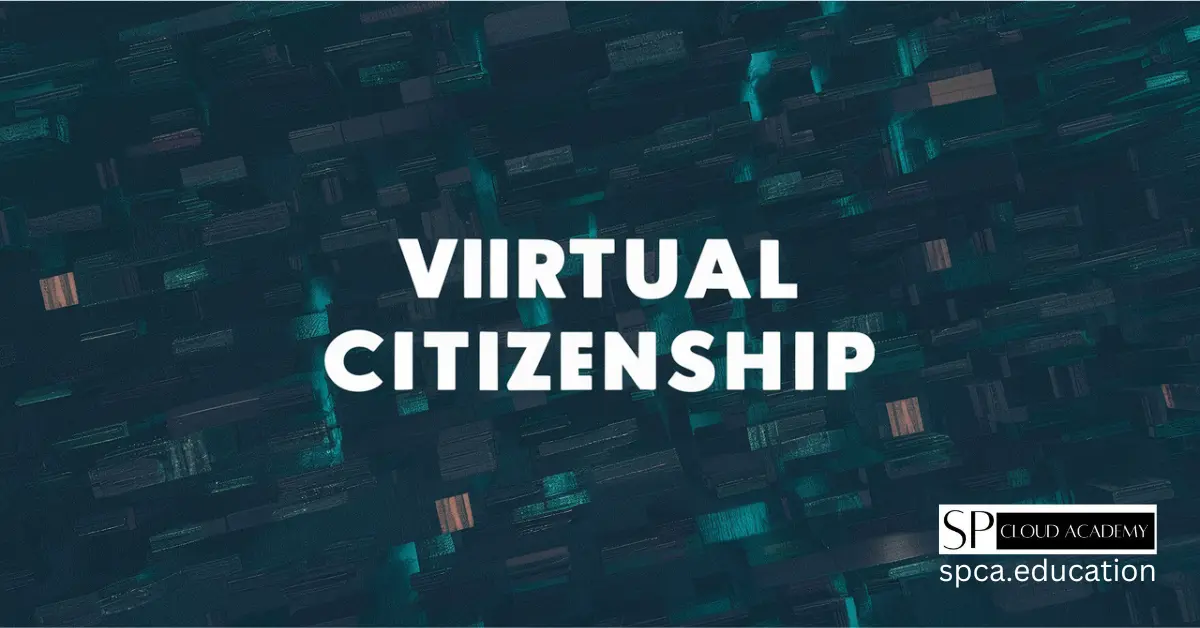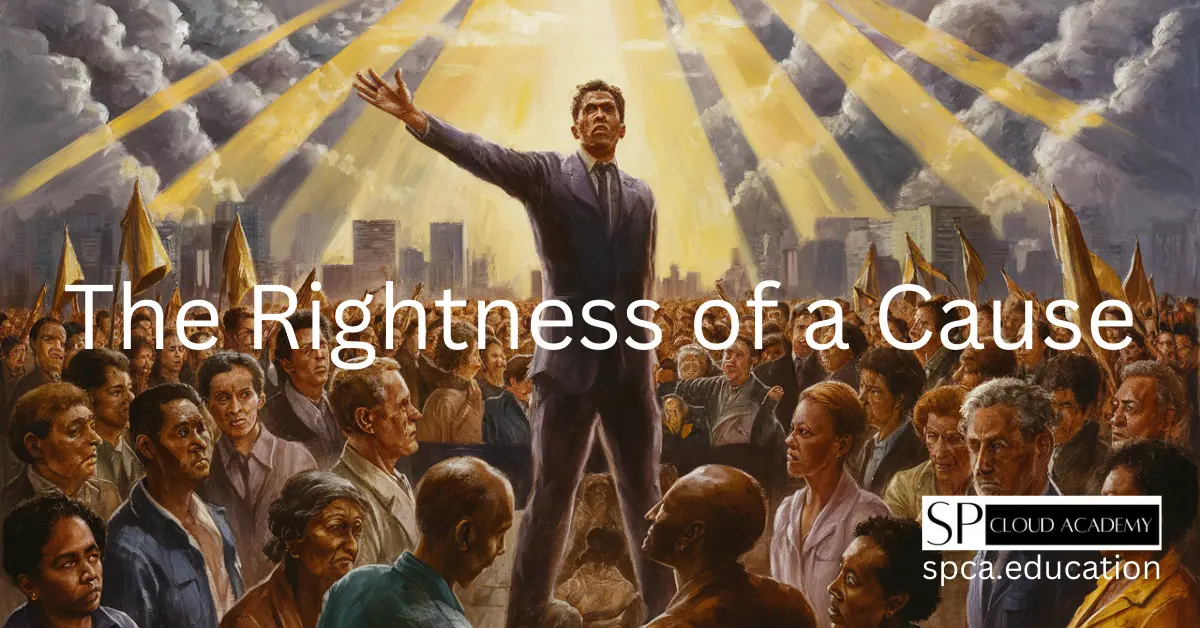1. Introduction: The Digital Transformation of Citizenship
In today’s hyper-connected world, the way we interact, govern, and define ourselves is undergoing a revolutionary transformation. Traditional concepts of citizenship—reliant on geography, physical borders, and long-established legal systems—are rapidly evolving under the influence of digital technology. Termed virtual citizenship, this idea envisions a scenario where individuals can become citizens of digital nations, communities where identity is managed online, rights are bestowed via digital systems, and responsibilities are executed in the space of cyberspace.
Our society is in the midst of an exciting yet challenging transition. With advancements in blockchain technology, secure digital identification, and decentralized governance, notions such as e-residency and cyber rights have taken center stage. The line between the analogue and digital worlds is blurring—a phenomenon not only reshaping interpersonal interactions and economic models but also fundamentally altering how we think about belonging and community. This article aims to provide you with a robust understanding of virtual citizenship, guiding you through the concept’s inception, application, and potential future as we transition into the digital era.
In this new ecosystem, the concept of being a “citizen” no longer ties exclusively to the nation-state in which you were born or by which you were naturalized. Rather, it embraces a broader, more inclusive definition—one where every online interaction, digital transaction, and networked relationship can contribute to a person’s civic identity. By exploring these trends and technologies, we hope to answer the compelling question: Are you ready to be a digital nation’s citizen? This comprehensive guide will navigate you through the history, the present status, and the future implications of virtual citizenship, ensuring you have all the insights needed to assess this paradigm shift.
2. Defining Virtual Citizenship: Beyond Borders and Bureaucracy
Virtual citizenship can be understood as the status conferred upon individuals when they adopt digital identities that grant them rights and responsibilities within online communities or digital nation constructs. Unlike traditional citizenship, its criteria are not strictly determined by one’s physical location, ethnicity, or legal documents issued by international borders. Instead, virtual citizens operate in a digital realm that values decentralized participation, secure identity verification, and borderless membership.
What Makes a Virtual Citizen?
- Digital Identity and Verification: At the heart of virtual citizenship is a secure and verifiable digital identity. With modern identity management systems—often underpinned by blockchain technology—individuals can now verify their identities without the cumbersome requirements of traditional physical documentation. Each virtual identity serves as a passport, unlocking access to myriad online services, digital states, and virtual communities.
- Decentralized Governance: Virtual citizenship often operates within communities that embrace decentralized, democratic decision-making processes. Using technologies such as smart contracts and distributed ledgers, these communities facilitate transparent decision-making and collective governance, ensuring that no single entity monopolizes power.
- Rights and Access: Much like traditional citizens have rights bestowed by established legal frameworks, virtual citizens enjoy a suite of rights within the digital domain. These rights may include access to online public services, secure digital transactions, anonymity (or pseudonymity), and even participation in legislative-like processes governing their virtual communities.
- Participation and Responsibility: Being a virtual citizen isn’t just about enjoying digital privileges—it also involves engaging in the responsibilities of community participation. Active involvement in digital governance, upholding community norms, and collaborating to ensure cybersecurity are all facets of this modern civic engagement.
3. From Physical to Digital: The Evolution of Citizenship
The evolution of human society has always been intertwined with technology. Historically, citizenship evolved alongside the rise of organized nation-states, urbanization, and the industrial revolution. In the modern era, digital advancements have accelerated changes in every facet of life—social, economic, and political—including how citizenship is perceived and experienced.
Historical Roots and Shifts
- Traditional Citizenship: Traditional citizenship has, for centuries, been linked to tangible concepts—residency, territorial boundaries, and physical documents such as passports and identity cards. Governments have traditionally acted as the ultimate custodians of individual identity, bestowing rights and responsibilities according to geographical and legal jurisdictions.
- Early Digital Communities: With the advent of the internet, new forms of community began to emerge. Early online forums, chat rooms, and networked groups allowed individuals to interact freely across geographic divides. Though these communities were informal and lacked official recognition, they planted the seeds of a decentralized digital society.
- E-Governance and E-Residency: Countries like Estonia pioneered the concept of e-residency—a digital identity provided by the state that enables entrepreneurs and global citizens to access services without physical presence. This concept demonstrated that digital identity could coexist with, and even enhance, traditional governance structures.
- Blockchain and Decentralization: The blockchain revolution brought forth an unparalleled level of trust and security in digital transactions. Decentralized finance (DeFi) and cryptocurrencies paved the way for new models of governance and identity verification where centralized control was replaced by cryptographic protocols. This technology underpins many virtual citizenship systems by providing an immutable, transparent, and secure method of ensuring individual identity and facilitating community decisions.
The Paradigm Shift
In this rapidly evolving landscape, the idea of a “virtual citizen” represents more than a technological novelty; it is a fundamental shift in how society organizes its members and distributes civic responsibilities. This new construct is, in many ways, a natural evolution—a response to the need for more flexible, accessible, and global modes of participation. As the boundaries between the physical and digital worlds continue to blur, the very definition of citizenship is expanding. This expansion is empowering individuals who may be marginalized by traditional systems due to geography, economic status, or political constraints, making digital identity an instrument of both inclusion and empowerment.
Moreover, this evolution raises several critical questions: How will digital citizenship coexist with traditional forms of citizenship? What legal frameworks can accommodate a citizen who exists both on the ground and in cyberspace? And how will governments respond to a future where digital rights are as important as physical rights? As we explore these themes further, keep this transformation in mind as a powerful demonstration of how technology continues to redefine what it means to belong.
4. Core Components of Virtual Citizenship
To fully understand virtual citizenship, it is essential to break down its core components. These elements form the backbone of digital national identity and govern how citizens interact within their virtual communities. In a digital ecosystem, several foundational aspects ensure that virtual citizenship is both functional and resilient.
4.1 Digital Identity Management
At the center of virtual citizenship is the digital identity—a unique representation of an individual or entity in cyberspace. Modern systems leverage multi-factor authentication, biometric verification, and blockchain-based identity management systems to create secure digital personas.
- Blockchain Verification: Blockchain technology provides a secure way to verify digital identities by maintaining an immutable ledger of identity claims. Every digital citizen can have a tokenized identity that can be independently verified, ensuring both security and privacy.
- Biometric and Multi-Factor Authentication: Biometric data (such as fingerprint or facial recognition) combined with multi-factor authentication methods ensures that digital identities are tied to a real human presence, reducing the risk of fraud and identity theft.
4.2 Decentralized Governance Systems
Digital nations often experiment with decentralized systems of governance. Instead of relying on a central authority, decisions are made collectively through voting mechanisms and consensus algorithms. This model encourages active participation and ensures that every voice matters.
- Smart Contracts: Smart contracts are self-executing pieces of code that manage digital transactions and agreements without needing intermediaries. They can be used to enforce community rules and execute decisions democratically.
- Distributed Ledger Technology: This technology underpins the trust and transparency of decentralized governance. It provides a public ledger accessible to all members of the community, ensuring that processes are open to scrutiny and collaboration.
4.3 Digital Rights and Access
A robust framework of digital rights is paramount for virtual citizenship. These rights include secure access to online services, protection of personal data, freedom of digital expression, and the ability to participate meaningfully in community decision-making. Just as traditional citizens enjoy constitutional rights, digital citizens require legal and technological frameworks that safeguard their online interactions.
- Data Sovereignty: Digital citizens should have control over their personal data. Data sovereignty ensures that individuals are the ultimate owners of their data, with clear rights on data sharing, use, and privacy.
- Cybersecurity Measures: As digital spaces become more integrated with day-to-day life, cybersecurity becomes essential for protecting citizens. This involves advanced encryption methods, regular security audits, and continuous monitoring of digital infrastructures.
4.4 Virtual Social Contracts and Community Norms
Just as physical communities form social norms and contracts that foster trust and mutual responsibility, digital nations require their own set of guidelines. These virtual social contracts are often codified through community guidelines, legal frameworks, and even algorithmically enforced standards.
- Community Standards: Online communities set explicit standards for acceptable behavior. These can range from moderation policies in social networks to codes of conduct in decentralized autonomous organizations (DAOs).
- Algorithmic Enforcement: In many virtual citizenship models, algorithms play a role in moderating content and ensuring compliance with community standards. While this presents efficiency, it also necessitates transparency and accountability to prevent bias and censorship.
4.5 Financial and Economic Tools
Within digital nations, financial transactions are increasingly conducted using digital currencies, decentralized finance (DeFi), and tokens. These tools not only facilitate commerce but also reflect the economic empowerment of virtual citizens.
- Cryptocurrencies and Tokens: Many digital communities use cryptocurrencies to manage transactions, voting rights, and other civic duties. Token-based economies can incentivize participation, reward contributions, and create a thriving digital market ecosystem.
- Decentralized Finance (DeFi): DeFi platforms allow citizens to engage in lending, borrowing, and investing through decentralized systems that bypass traditional financial intermediaries. This democratizes financial access and supports economic inclusion in digital societies.
By understanding these core components—digital identity, decentralized governance, digital rights, virtual social contracts, and economic tools—you get a clearer picture of the intricate systems that make up virtual citizenship. Together, these elements weave a framework that augments traditional societal structures and redefines the very notion of community in the digital era.
5. The Promising Benefits of Embracing Digital Citizenship
Embracing virtual citizenship offers a range of benefits that have the potential to revolutionize our society. These advantages span from increased inclusivity and empowerment to enhanced security and innovation across sectors.
5.1 Borderless Inclusivity and Access
One of the most exciting aspects of virtual citizenship is its ability to transcend geographical boundaries. In a world where traditional borders often limit opportunities, digital communities create environments where:
- Global Access: Anyone with an internet connection is eligible to participate in digital nations, irrespective of their physical location. This global participation fosters cultural exchange, economic collaboration, and a deep sense of global community.
- Inclusivity for the Marginalized: Virtual citizenship can empower those who are marginalized by traditional systems—such as refugees, stateless persons, or those living in areas with limited infrastructural support—to assert their identity and actively participate in governance and economic opportunities.
5.2 Democratization of Governance
Digital citizenship champions the ideals of democratic participation, allowing individuals to have a voice regardless of socioeconomic barriers.
- Enhanced Representation: Decentralized governance models ensure that decisions are made collectively, offering a more balanced representation compared to traditional political systems where power is often concentrated in the hands of a few.
- Transparency and Accountability: Through the use of distributed ledger technology, every decision and transaction is recorded and made publicly available. This level of transparency holds digital governments accountable and fosters trust among citizens.
5.3 Economic Empowerment and Innovation
The digital economy is a transformative force that offers vast economic opportunities:
- New Revenue Streams: Digital currencies and tokenized economies enable microtransactions, crowdfunding, and new business models that empower entrepreneurs and content creators alike.
- Financial Inclusion: DeFi platforms remove traditional barriers to entry in the financial sector, allowing individuals to access loans, savings, and investments without the need for traditional bank accounts.
5.4 Enhanced Security and Privacy
A robust digital identity system, when combined with cutting-edge encryption and privacy protocols, offers enhanced protection for personal data:
- Control Over Personal Data: Virtual citizenship frameworks are designed with user privacy at their core. As individuals control their digital identities, they also gain authority over who accesses their personal information.
- Resilience Against Cyber Threats: With continuous improvements in cybersecurity and blockchain technology, digital identity systems are becoming increasingly secure, ensuring that personal data and online interactions remain safe from malicious actors.
5.5 Innovation in Public Service Delivery
Digital nations are rewriting the playbook on how public services are delivered:
- E-Governance Models: Digital solutions simplify bureaucratic procedures, enabling e-governance platforms that are faster, more transparent, and accessible to a wide audience.
- Customized Public Services: By leveraging data analytics and AI, online governments can tailor services to the specific needs of their citizens, making government responsiveness more efficient and personalized.
5.6 Community, Collaboration, and Cultural Exchange
The very nature of virtual citizenship encourages enhanced collaboration and community-building:
- Global Communities: Digital platforms dissolve traditional cultural boundaries, leading to rich, diverse communities built on shared interests rather than geographic proximity.
- Collaborative Innovation: With an inclusive digital environment, innovation thrives. Intellectual property, creative projects, and socio-technical initiatives often emerge from collaborative efforts across borders, fueled by collective problem-solving.
The numerous benefits of virtual citizenship extend well beyond mere convenience. They challenge the limitations of traditional systems, open new realms for individual empowerment, and drive systemic innovations that can benefit society as a whole. However, as promising as these benefits are, they are intertwined with challenges and risks that must be carefully managed.
6. Challenges and Risks in the Realm of Virtual Citizenship
Despite the myriad advantages of digital citizenship, the path to a fully realized virtual nation is lined with significant challenges. As with any pioneering endeavor, the transition from traditional systems to digital frameworks brings with it complexities, uncertainties, and risks.
6.1 Cybersecurity Threats
In an interconnected digital world, cybersecurity becomes paramount:
- Data Breaches and Identity Theft: While blockchain and advanced encryption enhance security, no system is entirely impervious to cyber attacks. Hackers, sophisticated malware, and phishing attempts pose constant threats to digital identities and monetary assets.
- System Vulnerabilities: The rapid evolution of technology sometimes outpaces the development of security protocols. New vulnerabilities may be discovered, potentially compromising the data and finances of thousands of virtual citizens.
6.2 Digital Divide and Accessibility
Not all individuals have equal access to digital resources:
- Technological Inequality: While urban and developed areas may enjoy high-speed internet and digital literacy, remote or economically disadvantaged regions might struggle with basic connectivity. This digital divide could create a new form of exclusion, even if formal citizenship is globally accessible.
- Educational Gaps: The shift towards digital citizenship requires a certain level of technical know-how. Without comprehensive digital education, many may find it difficult to navigate the systems, participate in governance, or protect their personal data.
6.3 Legal and Regulatory Ambiguities
Integrating digital citizenship within existing legal frameworks is no small feat:
- Jurisdictional Conflicts: Virtual citizenship challenges the concept of territorial jurisdiction. When a citizen exists in a digital space, conflicts might arise between national laws and the governance system of the digital community.
- Lack of Standardization: With multiple digital platforms and emerging virtual nations, there are hardly any universal standards for data privacy, identity verification, or even basic rights. The absence of harmonized regulation can lead to confusion and potential abuse.
6.4 Ethical and Social Considerations
The move from physical to virtual citizenship brings its own set of ethical dilemmas:
- Privacy vs. Transparency: While transparency in governance is crucial, there is a fine line between openness and infringing on individual privacy. Balancing these two facets is a constant challenge.
- Digital Exclusion and Bias: Automated systems and algorithms, if not carefully designed, risk reinforcing biases and excluding minorities. Algorithmic governance must be held to high ethical standards to ensure fairness and equity.
6.5 Economic and Financial Risks
The economic foundations of digital nations are relatively new and remain subject to volatility:
- Cryptocurrency Volatility: Digital currencies that underpin many virtual citizenship frameworks are notoriously volatile. Economic instability in the digital sphere can affect the financial wellbeing of virtual citizens.
- Fraud and Scams: The speed and anonymity of online transactions can sometimes facilitate fraudulent schemes. Virtual citizens must remain vigilant, and regulatory bodies need to create robust frameworks to mitigate these risks.
6.6 Technological Dependence and Systemic Failure
Relying heavily on technology comes with its own set of system-wide challenges:
- Infrastructure Outages: Cyber infrastructure can fail due to technical glitches, natural disasters, or targeted cyber attacks. A prolonged system outage in any digital nation could paralyze its functioning and disrupt essential services.
- Over-Depe ndence on Technology: The reliance on automated systems and digital verification may marginalize individuals with lower technological proficiency. A secure yet accessible infrastructure is essential to avoid creating a new class of digital disenfranchisement.
Addressing these challenges requires robust strategic planning, continuous technological innovation, and collaborative governance. As virtual citizenship continues to evolve, stakeholders across the digital ecosystem must work together to mitigate these risks while harnessing the potential benefits of an interconnected global community.
7. Rights and Responsibilities for the Digital Citizen
Just as traditional citizens enjoy rights and bear responsibilities, virtual citizens are held accountable within their digital communities. In many respects, the rights of a digital citizen are more dynamic and flexible, but they also come with distinct responsibilities that ensure the smooth functioning of digital society.
7.1 Digital Rights
The rights of a virtual citizen are enshrined in both technological frameworks and emergent legal guidelines:
- Data Ownership and Privacy: Virtual citizens should have complete control over their personal data. This means deciding what information is public, what is shared, and under which conditions third parties may access personal details.
- Freedom of Expression: Digital platforms typically advocate for free expression; however, this freedom must be balanced by community norms and legal boundaries that prevent hate speech and misinformation.
- Access to Public Services: Just as traditional governments provide citizens with essential services, digital nations are increasingly working to provide access to digital healthcare, education, and other public utilities through secure online portals.
- Participation in Governance: One of the hallmarks of virtual citizenship is the ability to engage actively in decision-making processes. Whether through direct digital voting or community consensus, every virtual citizen is empowered to shape the policies that affect their digital realm.
7.2 Responsibilities of Virtual Citizens
With great rights come equally significant responsibilities. Digital citizens must:
- Uphold Digital Integrity: Being a responsible digital citizen means adhering to community standards, respecting others’ digital rights, and avoiding behaviors that could compromise the security or integrity of the digital nation.
- Engage Actively: Participation in governance and community affairs is pivotal. Active involvement—whether through voting, providing feedback, or contributing content—ensures that virtual citizenship remains meaningful and inclusive.
- Protect Personal and Communal Data: With personal data being the cornerstone of digital identity, virtual citizens must adopt best practices for cybersecurity. This includes using secure passwords, multi-factor authentication, and staying informed about potential threats.
- Foster Ethical Digital Behavior: As with any community, ethical behavior is expected. This covers not only abiding by the rules but also contributing positively to the community, offering support to newcomers, and promoting digital literacy among fellow citizens.
7.3 The Social Contract in a Virtual World
The social foundation of virtual citizenship is built upon a digital social contract—a mutual agreement among community members to abide by certain principles and collective rules. Unlike traditional social contracts, this digital version is flexible, often existing as a living document that can evolve in response to emerging challenges and opportunities. It is continually re-negotiated through community discussions, technological updates, and changes in societal expectations.
This evolving dynamic of rights and responsibilities ensures that virtual citizenship remains a balanced exercise in freedom and accountability. It is this very balance that underpins the credibility and sustainability of virtual communities.
8. Legal and Regulatory Considerations in a Digital Age
As virtual citizenship becomes increasingly prevalent, legal and regulatory frameworks are struggling to keep pace with rapid technological advancement. The challenge lies in reconciling traditional laws—often tied to physical nations and tangible borders—with the fluid nature of the digital realm.
8.1 Jurisdiction in a Borderless World
One of the most significant legal challenges is establishing jurisdiction:
- National vs. Digital Law: When a citizen interacts online, multiple legal frameworks can come into play. National laws may conflict with the decentralized governance of a digital nation, raising questions about which legal standards prevail.
- International Collaboration: The resolution of jurisdictional conflicts may require international cooperation, where governments and digital communities collaboratively define rules that span borders. Establishing treaties and mutual agreements will be crucial in legitimizing digital citizenship on a global scale.
8.2 Emerging Regulatory Frameworks
Governments and institutions worldwide are actively debating how to regulate digital identities, cryptocurrencies, and virtual communities:
- Data Protection Laws: Laws such as the General Data Protection Regulation (GDPR) in Europe set a precedent for how personal data should be handled in digital spaces, emphasizing the importance of consent and transparency.
- Digital Transaction Regulations: As cryptocurrencies become the backbone of many digital economies, regulators are working towards frameworks that prevent financial crimes while fostering innovation.
- E-Governance Standards: For digital nations, creating standard laws to govern online interactions, resolve disputes, and enforce community decisions is a work in progress. These laws must balance the need for security, innovation, and personal freedom.
8.3 Intellectual Property and Content Ownership
In virtual citizenship, the management of intellectual property assumes a new level of complexity:
- Digital Copyright: Issues surrounding digital creations, including art, software, and written content, require new frameworks that can handle easy replication and distribution online while protecting creators’ rights.
- Content Sharing and Collaboration: Open-source models and digital creative communities thrive on content sharing, often challenging standard norms of ownership. Virtual nations may need to revise intellectual property laws to foster innovation while safeguarding contributors’ interests.
8.4 The Future of Digital Law and Governance
The ongoing conversation between technology developers, lawmakers, and citizens is setting the stage for a future where digital law is as robust and well-defined as its physical counterpart. The evolution of these legal doctrines will play a decisive role in how virtual citizenship is structured and supported.
As digital citizenship continues to disrupt conventional paradigms, it propels a reexamination of legal and regulatory norms. It is incumbent on governments, regulatory bodies, and digital communities to work hand in hand to craft laws that not only reflect the needs of a digital society but also preserve individual rights and promote innovation.
9. The Future of Virtual Citizenship: Trends and Predictions
Looking ahead, the growth of virtual citizenship promises to reshape our interaction with digital technology and redefine societal norms in unprecedented ways. Here are some trends poised to shape the digital landscape:
9.1 The Rise of Metaverse Communities
Virtual reality and augmented reality platforms—collectively known as the metaverse—are emerging as the natural habitat for digital citizens:
- Immersive Digital Experiences: As virtual and augmented reality technologies improve, digital citizens will experience highly immersive environments where social interactions, economic transactions, and governance processes occur in a simulated world.
- Blending of Physical and Digital Realms: Future metaverse communities are likely to integrate seamlessly with our physical lives, creating a hybrid model of existence where digital citizenship is an extension of our everyday identity.
9.2 Blockchain and Decentralized Identities
Blockchain technology remains at the forefront of this revolution:
- Immutable Identity Records: With blockchain’s promise of transparency and security, digital identities will be more secure, reducing fraud and enhancing trust in digital citizenship.
- Smart Governance: Decentralized applications (dApps) and smart contracts will facilitate more responsive and participatory governance models, allowing citizens to engage directly in decision-making processes.
9.3 Global Collaboration and Digital Diplomacy
As digital borders become porous, the opportunity for global collaboration increases:
- International Digital Alliances: Groups of virtual citizens from different parts of the world may form alliances, share resources, and collaborate on projects that address global challenges such as climate change, digital literacy, and cybersecurity.
- Digital Diplomacy: Nations may eventually establish formal channels with virtual governments, paving the way for international treaties and policies that acknowledge digital citizenship as an integral part of global society.
9.4 Innovations in Cybersecurity and Data Privacy
The evolution of virtual citizenship depends on maintaining trust:
- AI-Driven Security Protocols: Artificial intelligence will increasingly monitor digital ecosystems, identifying threats in real time and ensuring that digital communities remain secure.
- Enhanced Data Privacy Laws: As virtual citizenship scales, legal frameworks pertaining to data privacy will continue to advance, offering greater protection for personal data and a clearer understanding of digital rights.
9.5 Digital Education and Skill Development
To fully take advantage of virtual citizenship, digital literacy is imperative:
- Curriculum Overhauls: Educational systems will likely integrate digital citizenship and cybersecurity training into standard curricula. This ensures that upcoming generations are better prepared to thrive in digital communities.
- Lifelong Learning: Digital citizenship is a continually evolving field. Workshops, online courses, and certification programs will become standard offerings as part of a global commitment to lifelong learning.
These trends provide a glimpse into the future of virtual citizenship. They signal not only technological advancement but also a cultural and societal shift that redefines what it means to be a citizen in a world without rigid borders.
10. How to Become a Virtual Citizen: A Step-by-Step Guide
Embracing the digital era requires proactive steps to become a fully integrated virtual citizen. Below is a practical guide tailored to help you navigate the essential steps to secure your digital identity and participate actively in your chosen online community.
# Step 1: Establish a Secure Digital Identity
- Research Reliable Platforms: Begin by exploring reputable digital identity providers. Look for systems that utilize blockchain technology to ensure the immutability of your digital credentials.
- Set Up Multi-Factor Authentication: Incorporate strong security measures—such as multi-factor authentication and biometric verification—to protect your newfound digital identity.
- Link Your Credentials: Associate your digital identity with platforms or digital governments that you wish to join. Ensure your credentials are verified and are tied to reputable networks.
# Step 2: Choose Your Digital Nation
- Research Digital Communities: Look for virtual nations or digital communities that align with your personal beliefs, interests, and goals. Compare their governance structures, community values, and user reviews.
- Evaluate Participation Models: Some digital nations emphasize democratic voting, while others focus on collaborative innovation or economic participation. Choose one that best fits your skills and aspirations.
- Assess Legal and Financial Frameworks: Ensure that the digital nation has robust legal protections, clear guidelines for data privacy, and a stable financial ecosystem if digital currencies are involved.
# Step 3: Engage in Digital Governance
- Participate in Forums and Discussions: Engage with community members on official forums, social media groups, or dedicated digital platforms. Your active participation helps shape the community’s future.
- Vote and Influence Decisions: If the digital nation offers participatory governance, take part in votes, policy discussions, and community projects. Your input is essential for transparent and equitable decision-making.
- Volunteer for Community Projects: Get involved in initiatives that aim to improve the cybersecurity, data privacy, or the overall infrastructure of the digital nation. This not only strengthens your digital resume but also contributes to communal growth.
# Step 4: Adhere to Digital Ethics and Best Practices
- Educate Yourself Continuously: Stay updated on the latest cybersecurity trends, advancements in blockchain, and changes in digital legal frameworks. Digital citizenship is an ever-evolving field.
- Follow Community Guidelines: Adhere strictly to the digital nation’s code of conduct and community guidelines. Maintaining digital integrity builds trust and fosters a healthier online environment.
- Safeguard Your Personal Data: Regularly update security settings, monitor your digital footprint, and be cautious about sharing sensitive information online.
# Step 5: Build and Cultivate Your Virtual Network
- Network with Like-Minded Individuals: Connect with other virtual citizens who share similar interests. This network not only offers support but also enriches your digital experience.
- Attend Virtual Conferences and Workshops: Expand your knowledge and participate in digital governance events. These gatherings are excellent venues for learning and collaboration.
- Share Your Digital Journeys: Keep a blog, podcast, or social media channel that highlights your experiences as a virtual citizen. Sharing insights can help build your reputation and inspire others to join.
This step-by-step guide is designed to empower you to make a smooth transition into the world of virtual citizenship. As technology continues to advance, these procedures will become even more streamlined, making digital national identity an accessible and enriching experience for everyone.
11. Virtual Citizenship in Practice: Case Studies and Examples
Across the globe, a number of pioneering initiatives have laid the groundwork for what it means to be a virtual citizen. Here are a few notable examples and case studies that highlight the practical successes—and lessons learned—within digital communities.
11.1 Estonia’s E-Residency Program
Estonia’s e-residency program is often regarded as the gold standard for digital identity and governance. Launched to facilitate access to business services and financial transactions internationally, e-residency:
- Provides a Secure Digital Identity: Estonian e-residents receive government-issued digital identities verified through secure channels, allowing them to open bank accounts and manage businesses remotely.
- Offers Extensive Digital Services: Beyond identity, the program extends benefits such as digital signatures, secure document exchange, and access to a range of public services.
- Sets a Precedent for Digital Governance: Estonia’s model has inspired similar initiatives around the world, proving that digital citizenship can empower entrepreneurs and citizens alike.
11.2 Decentralized Autonomous Organizations (DAOs)
DAOs represent a radical rethinking of traditional corporate and governmental structures:
- Community-Driven Governance: In DAOs, decisions are made collectively. Members vote on proposals, fund projects, and manage community resources using blockchain-backed voting systems.
- Financial and Operational Transparency: Every transaction within a DAO is recorded on a public ledger, fostering accountability and trust among members.
- Inspiration for Virtual Nations: The DAO model showcases that decentralized, community-controlled organizations can operate efficiently without the need for central authority—an idea at the very heart of virtual citizenship.
11.3 Virtual Communities in Gaming and Social Platforms
Massive online multiplayer games and virtual worlds like Second Life and Decentraland have created thriving digital economies:
- In-Game Economies as Real Economies: These virtual environments often incorporate their own currencies, digital real estate, and a system of governance that mirrors real-world economic structures.
- Social Integration and Collaboration: Users build relationships, form communities, and engage in creative projects in these digital spaces. Their experience is a testament to how virtual citizenship can foster genuine social bonds.
- Economic Empowerment: Many participants leverage virtual worlds to launch businesses, offer digital services, and engage with a global market—all while maintaining a separate, recognized digital identity.
12. Philosophical and Social Impacts of Virtual Identity
Virtual citizenship is not merely a technological or economic phenomenon—it is also a profound cultural shift. It touches on vital philosophical questions surrounding identity, community, and the very notion of citizenship itself.
12.1 Re-Defining Identity in the Digital Age
- Fluidity of Self: In the digital realm, boundaries are more fluid than ever before. Virtual identities may evolve, adapt, or even be segmented depending on the platform or community. This fluidity challenges traditional ideas of a fixed, immutable self while simultaneously offering greater freedom for self-expression.
- Multiplicity and Anonymity: Digital platforms allow individuals to take on multiple roles. One might be a professional on one platform, a creative on another, and perhaps a dedicated community organizer in a separate digital sphere. While this anonymity can empower free expression, it also raises questions about accountability and authenticity.
12.2 The Sense of Belonging in a Dispersed World
- Global Community Formation: Virtual citizenship creates communities that extend far beyond local or national boundaries. These communities, built on shared interests and values, offer a deep sense of belonging in a world that is otherwise fragmented.
- Cultural Exchange and Diversity: In digital nations, exposure to multicultural perspectives is an everyday occurrence. The resultant cultural exchange enriches creative collaborations and fosters greater global empathy.
12.3 Ethical Considerations and the Digital Social Contract
- Balancing Freedom and Responsibility: With increased digital freedom comes the need for robust ethical frameworks. The digital social contract is continuously re-negotiated, requiring each citizen to balance individual liberties with collective responsibilities.
- The Evolution of Civic Duty: Virtual citizenship redefines civic duty. Instead of solely participating in physical civic activities, today’s citizens are encouraged to engage in online political debates, community moderation, and digital philanthropy.
The philosophical implications of virtual citizenship are vast and invite us to reconsider what it truly means to be “at home” in an ever-globalizing world. Virtual citizenship not only offers practical advantages but also challenges us to evolve our thinking about identity, society, and governance.
13. Assessing Your Readiness for Digital Nation Membership
Before stepping into the role of a digital citizen, it is important to assess your own preparedness. This involves evaluating your technological know-how, understanding your rights and responsibilities, and considering the broader implications of your digital participation.
13.1 Digital Literacy and Skills
- Technical Proficiency: Familiarize yourself with the basics of blockchain technology, digital security practices, and decentralized governance tools. Consider taking online courses or participating in workshops to enhance your skillset.
- Staying Informed: Keep up-to-date with the latest trends in cybersecurity and digital law. Knowledge is your most effective tool against cyber threats and misinformation.
13.2 Evaluating Your Digital Footprint
- Data Management: Review your existing digital presence—your social media profiles, online accounts, and digital transactions—to ensure they meet secure standards. Regularly update passwords, use two-factor authentication, and audit app permissions.
- Privacy Considerations: Understand the value of your personal data. Before joining any digital nation or platform, review its data privacy policies and ensure you are comfortable with how your data will be handled.
13.3 Aligning With Community Values
- Research the Digital Nation: Every digital community has its own values, operational guidelines, and governance standards. Assess whether these align with your own philosophical beliefs and ethical responsibilities.
- Active Participation: Prepare to engage actively by reading community guidelines, attending forums, and familiarizing yourself with community governance processes. A passive observer in a rapidly evolving digital nation is unlikely to reap its full benefits.
13.4 Balancing Dual Identities
- Physical vs. Digital Identity: Recognize that virtual citizenship does not require you to abandon traditional citizenship. In fact, most digital communities are designed to complement your existing identity, not replace it.
- Mindful Integration: Consider how an expanded digital presence can enhance your personal, professional, and civic life. The key is to integrate both identities in a balanced and secure manner.
This self-assessment is crucial as it helps you determine whether you are ready to actively participate in a digital community. Virtual citizenship requires commitment, continuous learning, and a proactive approach to safeguard your personal and collective interests.
14. Concluding Thoughts: Embracing the Digital Future
The emergence of virtual citizenship marks a turning point in the evolution of human society. As technology continues to redefine the concepts of identity, governance, and community, we find ourselves at the crossroads of physical and digital realms. Virtual citizenship offers an invitation to reimagine traditional boundaries, empowering individuals with the opportunity to become active participants in a borderless digital nation.
Today’s digital citizenship is much more than a technological trend—it is a revolution in how communities are built, how public services are delivered, and how personal identity is defined. From secure digital identities backed by blockchain technology to decentralized governance models that foster real democratic participation, the digital nation concept is poised to transform nearly every aspect of modern life.
However, as you consider joining this movement, it is essential to weigh both benefits and challenges. While virtual citizenship can empower you with unprecedented freedom, inclusivity, and innovative opportunities, it also requires you to be vigilant about cybersecurity, legal nuances, and the ethical implications of life in a digital community.
So, the question remains: Are you ready to be a digital nation’s citizen? If you feel inspired by the promise of a borderless, participatory society, if you are eager to leverage technology for personal empowerment and global good, and if you are prepared to navigate the complexities of digital governance, then stepping into the realm of virtual citizenship might be the next transformative leap in your civic journey.
Embrace the digital future—not by discarding tradition, but by building upon it. Enter a world where identity is enriched by both physical experience and digital innovation, and where each day brings new opportunities to shape the society of tomorrow.
See Also
-

The Ultimate Guide to Brainstorming: How to Turn Any Idea into Gold
-

Equality or Equity? The Hidden Key to Truly Inclusive Classrooms
-

From Trend to Transformation: The Rise of Paradigm in Modern Life
-

AI vs. The Mind: The Ultimate Battle Between Machine and Thought
-

Make Money While You Sleep: The Ultimate Guide to AI-Powered Passive Income
-

Virtual Citizenship Explained: Are You Ready to Be a Digital Nation’s Citizen?
-

AI for Transparency: The Secret Weapon Behind Modern Good Governance
-

How Social Media is Revolutionizing Good Governance: The Power of Digital Voices
-

Moral Compass: Understanding the Rightness of a Cause in Modern Society